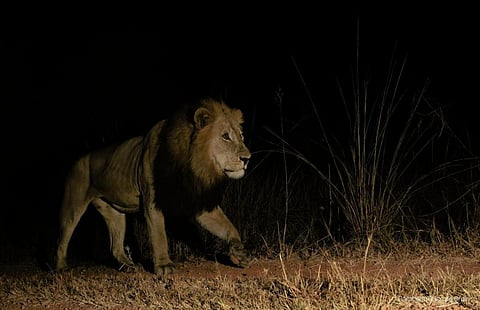

Lion and leopard populations have begun rebounding in Africa’s third-largest national park — Zambia’s Kafue National Park (KNP) — after 50 years of poaching, according to a new report from Panthera, the global wild cat conservation organisation, and partners.
Scientists found leopard densities in southern KNP increased threefold — from about 1.5 leopards in 2019 to approximately 4.4 leopards per 100 square kilometres in 2022.
“Leopard densities stabilised in northern Kafue and more than doubled in central KNP. Lion densities also stabilised in northern KNP, increased in southern Kafue and nearly doubled in central KNP,” a statement released by Panthera on June 1, 2023, said.
The statement attributed the rise to a number of factors. The first was conducting rigorous counter-poaching operations for four years.
Zambia’s Department of National Parks and Wildlife (DNPW), with support from Panthera, the North Carolina Zoo and multiple partners, led daily coordinated operations.
Game-changing conservation technologies like SMART (Spatial Monitoring and Reporting Tool) and EarthRanger were employed in these operations.
This, the statement said, enabled rangers to surveil wide areas of KNP more accurately and analyse data at a faster rate to stay one step ahead of poachers, including visually tracking patrol routes, poacher activity and collared wildlife. It added:
Patrols were enhanced by the pioneering use of vultures as early warning systems. In fixing satellite tags to 19 African vultures, scientists from the North Carolina Zoo and Panthera trialed how vultures can help identify illegal activities like poisoning, which threaten vultures and carnivores alike.
Another important factor was effective prosecution.
Forty teams patrolled some 211,000 km in 2021. Their efforts led to 322 apprehensions.
“While many countries fail to deter and prosecute poaching crimes, support from Zambia’s Wildlife Crime Prevention (WCP) has aided DNPW and the National Prosecution Authority in achieving an 85 per cent conviction rate for offenses involving lion or leopard parts — with 78 per cent receiving a custodial sentence for an average of 5.1 years around Kafue and beyond,” the statement noted.
A final factor was the distribution of synthetic ‘Heritage Furs’ replacing garments made of authentic leopard and lion skins.
What is more, all this was accompolished at a significantly low cost.
Law enforcement activities in Kafue from 2018 to mid-2022 were implemented at a significantly reduced annual cost, with $211 per sq km spent in the peak year (2021) compared to the $1,000-2,000 per sq km typically referenced for unfenced wildlife protection efforts, according to the release.
At roughly 22,400 sq km, KNP sits within the Kavango Zambezi Transfrontier Conservation Area (KAZA), the largest terrestrial conservation landscape in the world spanning five countries (Angola, Botswana, Namibia, Zambia and Zimbabwe) that encompass some 520,000 sq km and 36 protected areas that stretch across a region the size of France.